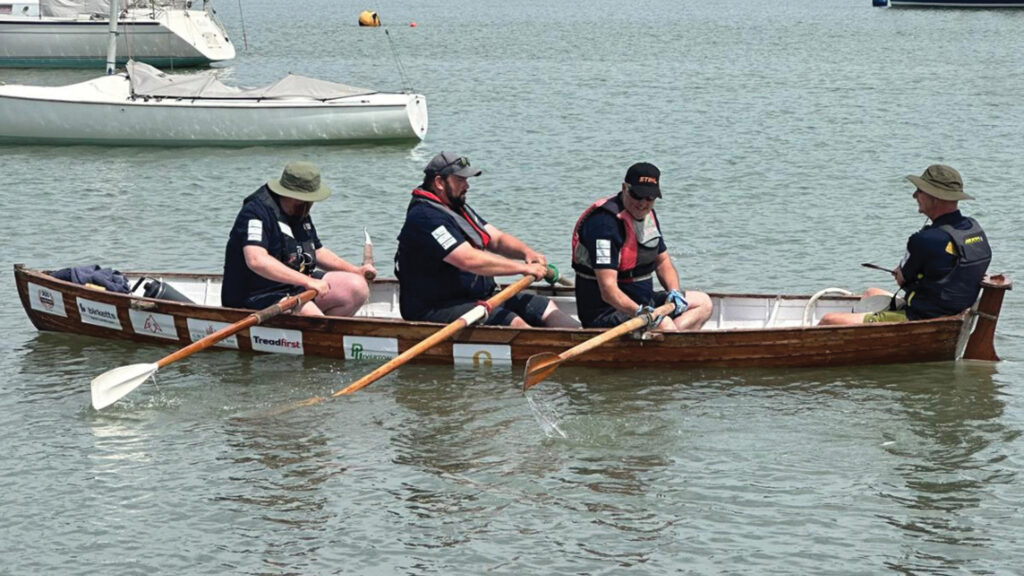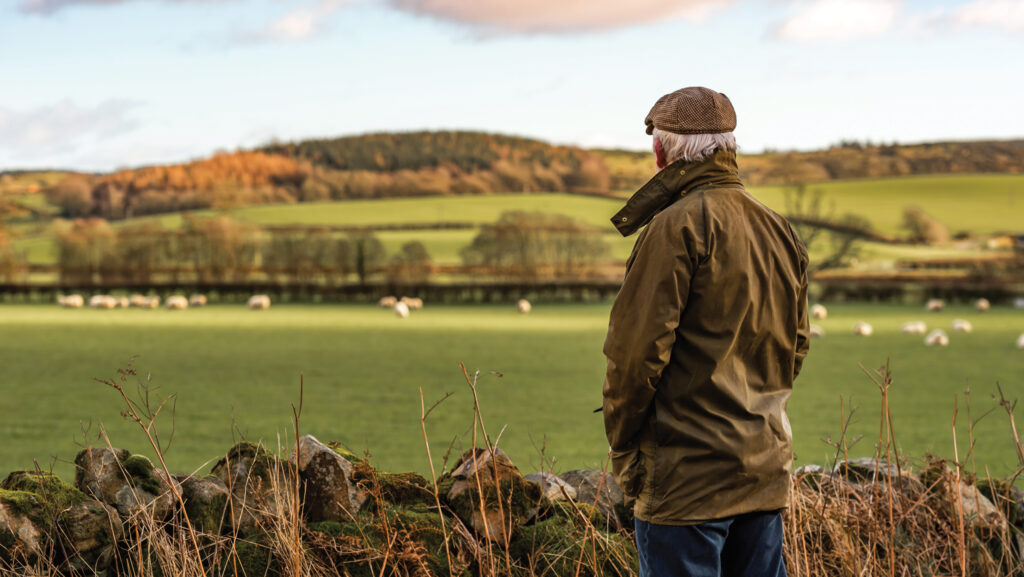Several risk factors that can be associated with dementia, such as isolation, hearing loss, and old age, are especially common among farmers. Yet, despite this, the agricultural sector has a reputation for late diagnosis and often being slow to seek help.
Admiral nurse Jane Colling at Dementia UK says that agriculture is a very stoical and tough profession, and people do not always prioritise their own health. It is estimated that less than half of individuals who might be living with dementia have ever been given a formal diagnosis.
See also: Farm Doctor: Could you recognise the signs of dementia?
According to Jane, one of the most common risk factors associated with the condition is cardiovascular health.
“We know that people with vascular problems, like high blood pressure and high cholesterol may go on to develop vascular dementia,” says Jane.
She adds that when someone showing early signs of dementia also has hearing loss, it can make things more challenging.
“While hearing loss is not a trigger for dementia, it can cause somebody to be outside of their normal community and function less well.”

© Adobe Stock
Dr Catrin Hedd Jones, senior lecturer in dementia studies at University of Worcester, adds that farmers can be particularly susceptible to hearing loss due to exposure to loud environments, often without adequate ear protection.
Lone working in remote locations can also lead to social isolation, which is linked with an increased risk of dementia.
With ageing also being one of the risk factors, older farmers are also considered more susceptible.
Catrin says: “One of the challenges we noticed is there is definitely denial and a fear of stigma within farming families and rural communities.”
Staying active
Benefits have been observed for those with dementia from being active and outdoors. However, farm safety must also be a consideration, and some jobs may no longer be feasible.
Catrin believes that providing tasks for someone to use their skills and contribute on farm is still important, as removing these opportunities can be really detrimental to people’s wellbeing and lead to further declines in health.
She says it is about understanding what people can and can’t realistically do.
“There is an automatic assumption that if someone has dementia they shouldn’t drive, but that is not always true and there are tests out there that people can take every year to make sure they are OK,” says Catrin.
“Dementia is such a variable condition, and it can affect people in different areas of the brain, so we need to increase the debate about how dementia can or cannot affect somebody.”
Self-esteem
Jane agrees that individuals with dementia should continue to do what they enjoy and are familiar with.
She continues: “We know for a fact that continuing to have self-esteem through work, and a role in the family and community is really key to helping somebody who is having cognitive changes stay happy and not get withdrawn.
“We always try to optimise a person’s safety without limiting them completely. You will never completely reduce all risks, but it’s about optimising the environment.”
This can include determining whether a person should be driving, whether they should operate heavy machinery, or whether there may be other jobs on farm that they may be better suited to.
Jane advises that to avoid friction between generations, a family member with dementia should be made to still feel valued and validated and that they have got something to offer.
“A lot of that is about communication styles and skills and not excluding them. It’s not saying ‘you can’t do this any more’, but looking at what they can still do.”
Wider impact
Having a family member with dementia can have an impact on farm businesses and future succession.
Catrin encourages farming families to have an open dialogue and warns that dementia can even have a legal implications on people’s livelihoods if it is not discussed openly.
She says: “With dementia, if people haven’t got the right legal power of attorney and protection in terms of making decisions, it can be really difficult for the family.”
Catrin points out that the older person is still often be the one who controls the farm’s finances, which can lead to complications.
She explains that when people avoid talking about dementia, they are also avoiding discussing its implications, which can restrict the next generation’s ability to take control of the farm themselves.
Seeking support
Medical professionals encourage advice to be sought as early as possible.
Diagnosis for dementia is typically done by a doctor, who can carry out memory and blood tests.
However, research has highlighted a lack of support in rural areas, with many support services based in cities and towns.
Jude McCann, chief executive at the Farming Community Network (FCN), says: “If a loved one has dementia and you are struggling with the upkeep and management of your farm, FCN can help.”
The charity has produced a free online booklet (opens as PDF) dementia and farming through its FarmWell platform.
The charity also helped to co-design an information booklet (opens as PDF) farming carers alongside Dorset farmer Jennifer Evans, based on her own experiences with a family member who developed dementia.
Dementia UK offers a helpline, and Jane recommends that if families are concerned about an individual, they seek support.
The University of Worcester has also collaborated with farmers with dementia to create a guide to help others following diagnosis.
It is also looking for individuals with a farming background to work on a PHD project, to help create a toolkit on dementia for farming families, which can provide further help about running the business and succession.
Rowing challenge raises funds for Dementia UK

© Thurlow Nunn Standen
Agricultural machinery dealers Thurlow Nunn Standen (TNS) have raised more than £30,000 for Dementia UK, after taking part in an 11-mile rowing challenge on the river Deben.
Ben Hockley, Simon Pink, and John Drake based out of the firm’s Melton branch in Suffolk took on the rowing challenge.
However, shortly after setting off, the rowers were joined by a fourth team member, Adrian Brown, who was tasked with bailing water out the boat for the duration of the challenge after it sprung a leak.
Simon Pink, service manager at TNS Melton, said: “It was a physically demanding but incredibly rewarding experience.
“Despite the challenges on the day, we stayed focused and completed the row.”
TNH plans to raise more than £150,000 for Dementia UK as part of the firm’s 150th anniversary celebrations.

